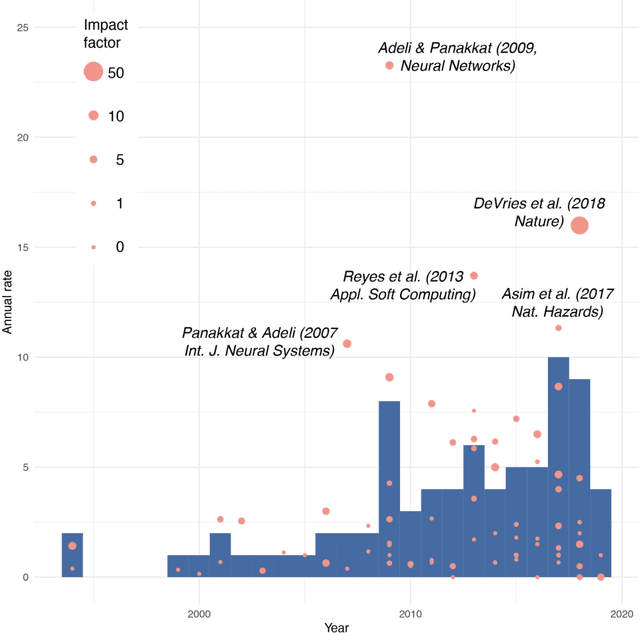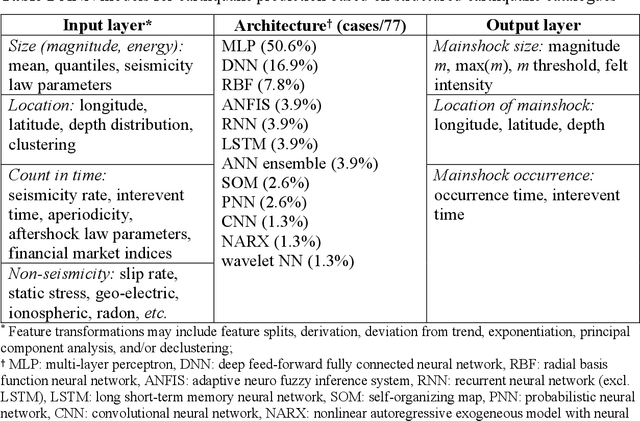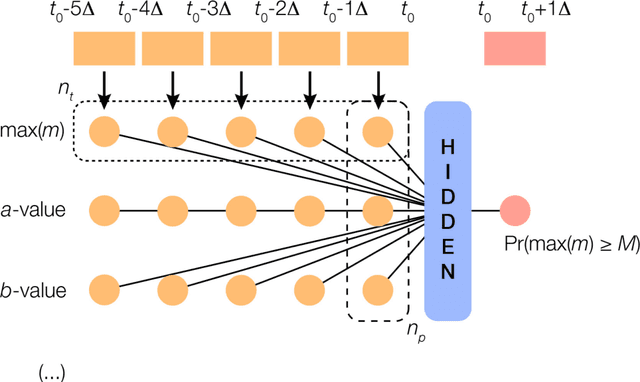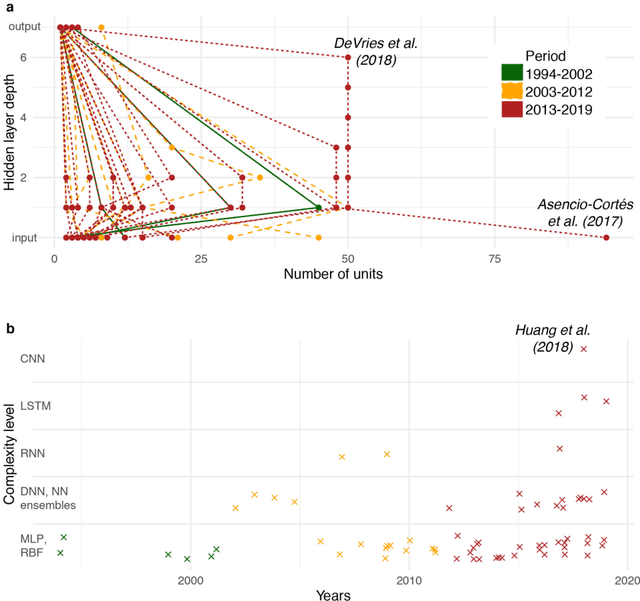Neural Network Applications in Earthquake Prediction (1994-2019): Meta-Analytic Insight on their Limitations
Paper and Code
Oct 02, 2019



In the last few years, deep learning has solved seemingly intractable problems, boosting the hope to find approximate solutions to problems that now are considered unsolvable. Earthquake prediction, the Grail of Seismology, is, in this context of continuous exciting discoveries, an obvious choice for deep learning exploration. We review the entire literature of artificial neural network (ANN) applications for earthquake prediction (77 articles, 1994-2019 period) and find two emerging trends: an increasing interest in this domain, and a complexification of ANN models over time, towards deep learning. Despite apparent positive results observed in this corpus, we demonstrate that simpler models seem to offer similar predictive powers, if not better ones. Due to the structured, tabulated nature of earthquake catalogues, and the limited number of features so far considered, simpler and more transparent machine learning models seem preferable at the present stage of research. Those baseline models follow first physical principles and are consistent with the known empirical laws of Statistical Seismology, which have minimal abilities to predict large earthquakes.
 Add to Chrome
Add to Chrome Add to Firefox
Add to Firefox Add to Edge
Add to Edge